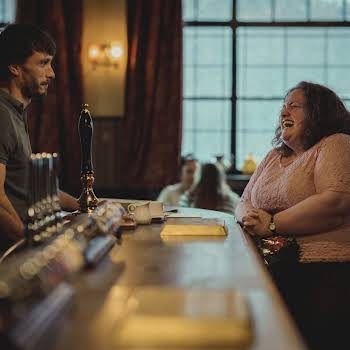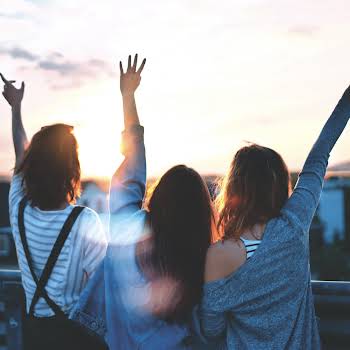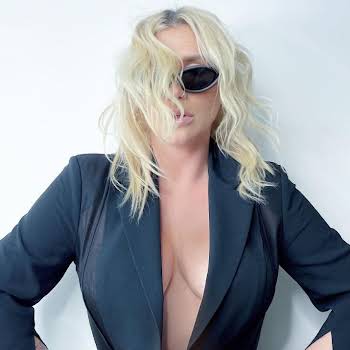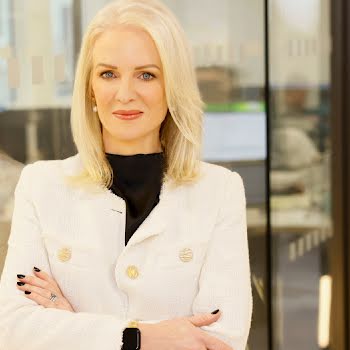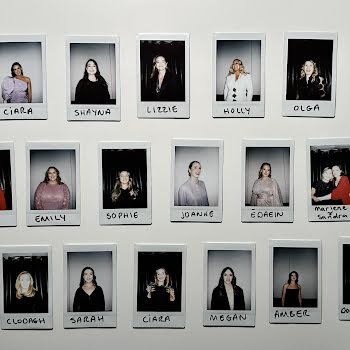By Sarah Finnan
28th Sep 2021
28th Sep 2021
Weinstein’s Hollywood is bad but the recently told experiences of Sophie Ellis-Bextor, Duffy, Alanis Morisette and even Amy Winehouse now places the spotlight on the music industry
Sophie Ellis-Bextor
For Sophie Ellis-Bextor, losing her virginity was a particularly traumatic experience. Opening up about the memory for the first time in her recent memoir, Spinning Plates, the model and singer revealed that she was raped by an older musician. Just 17 years old at the time, she said that she was taken advantage of by a 29-year-old guitarist who ignored all her protestations. “I heard myself saying ‘No’ and ‘I don’t want to’, but it didn’t make any difference,” she wrote.
“He had sex with me and I felt so ashamed. It was how I lost my virginity and I felt stupid. I felt grubby, but also unsure about my own feelings as I had no other experience to compare it with,” the Murder on the Dancefloor singer continued.
First meeting the musician, who she calls Jim, at a gig, she remembers how he invited her back to his flat to see his history books. “Before I knew it, we were on his bed and he took my knickers off.” It’s only in hindsight that she realises just how wrong what happened to her was though. Yes, she was left confused by the whole thing, but this happened in the 90s when conversations around consent were few and far between. Rape was more “something you associated with aggression”.
Advertisement
In fact, the songwriter was made to feel as though she didn’t have a leg to stand on because, as she put it, “No one had pinned me down or shouted at me to make me comply”. “The things I saw and read and the way sex was discussed made me believe I didn’t have a case.”
While our understanding of what constitutes rape and sexual assault has evolved since then, the feelings she describes are still prevalent amongst victims today. According to Rape Crisis England and Wales, people tend to think they won’t be believed if there are no physical signs of harm… and even then, few are willing to come forward with their stories.
Unfortunately, Sophie’s is not an isolated incident in the music industry; many others have already gone through similar traumas. It’s the small sliver of hope that she might help people understand “where the line between right and wrong lies” that encouraged her to speak up after all these years. “My experience was not violent. All that happened was I wasn’t listened to. Of the two people there, one said yes, the other said no, and the yes person did it anyway,” she wrote. “The older I’ve become, the more stark that 29-year-old man ignoring 17-year-old me has seemed.”
Now 42-years-old, and a mother to five sons, speaking about consent has become all the more important to her. “I want to raise considerate, kind people who can take other people’s feelings into account. I want them to actively want the other person to be happy too, rather than just stopping because they have to.”
Duffy
Sophie Ellis-Bextor is just the latest woman to detail her experience, but as mentioned above, she’s only one of many with a story to tell. Last year, singer Duffy shocked the world with the admission that she had been drugged, raped and held captive over a period of four weeks.
Fans would often jokingly wonder what had happened to her, but no one could have anticipated just how dark a turn the story would take. Known for hit songs such as Mercy and Warwick Avenue, Duffy rose to fame in the mid-noughties, but she virtually vanished after the release of her second album in 2010.
Advertisement
Making an unexpected comeback to social media in February 2020, she first shared details of the horrific ordeal there. “You can only imagine the amount of times I thought about writing this,” the lengthy post began. “The way I would write it, how I would feel thereafter. Well, not entirely sure why now is the right time, and what it is that feels exciting and liberating for me to talk. I cannot explain it.
“Many of you wonder what happened to me,” she continued. “Where did I disappear to and why. A journalist contacted me. He found a way to reach me and I told him everything this past summer. He was kind and it felt so amazing to finally speak.”
Assuring fans that she is “ok and safe now”, Duffy then admitted that she had been “raped, drugged and held captive over some days”. “Of course I survived,” she added, but the recovery “took time”. “There’s no light way to say it. But I can tell you in the last decade, the thousands and thousands of days I committed to wanting to feel the sunshine in my heart again, the sun does now shine”.
Unable to speak out and express her pain until then, the singer said that she often asked herself “How can I sing from the heart if it is broken?”. Her eyes were full of sadness and she didn’t want the world to see. People everywhere were appalled to hear of what she had gone through, but the clamouring for information following her admission was a little unsettling. Duffy was sharing her grief on her terms, but all we wanted was more, more, more. More details, more specifics, more from her – the victim.
The whole thing takes on a much more sinister feeling when considering a previous interview she gave to Marie Claire back in 2011. Speaking of her own personal musical heroes, Duffy noted that they had all been victims of tragedy themselves. “Where I want to be and where I think I’ll be [in 20 years] are very different things,” she said. “The way history would have it is that I would end up in some form of tragic event. The people that I’ve loved – Dusty, Marvin, Edith Piaf – they didn’t always have happy stories. That’s the way history would have it… I take every day as it comes. You’re at the mercy of life.”
Two years later, she told Esquire magazine that she had taken a step back to “slow all this right down”. “It all got so complex, such responsibility,” she added. “I was serenading people to sleep, not running NASA. Suddenly, I was a product, an enterprise, a businesswoman. But mostly, I wanted to be human.”
Advertisement
The next year, The Guardian claims that Duffy’s producer said that she had gone “off the rails”. Everything “went pear-shaped for her” according to him. But he also admitted that she had essentially been “hurled into the fire”. Is it any wonder then that many of the greats have such sad stories? They’re left high and dry with no support to deal with the ever-growing burden of fame. It’s only after tragedy strikes that we all take stock and think, “God, we should have done more”.
Alanis Morisette
Earlier this month, Alanis Morissette criticised a new documentary about her album Jagged Little Pill, in which she alleged that multiple men had raped her at the age of 15. “It took me years in therapy to even admit there had been any kind of victimisation on my part,” she confessed. “I would always say I was consenting, and then I’d be reminded like ‘Hey, you were 15, you’re not consenting at 15’. Now I’m like, ‘Oh yeah, they’re all paedophiles. It’s all statutory rape’.”
While the singer never identified her rapists, she did ask for help… but it was to no avail. “I did tell a few people and it kind of fell on deaf ears. It would usually be a stand-up, walk-out-of-the-room moment… You know, a lot of people say ‘why did that woman wait 30 years [to report rape]?’ And I’m like, f*ck off. They don’t wait 30 years. No one was listening or their livelihood was threatened or their family was threatened. The whole ‘why do women wait’ thing? Women don’t wait. Our culture doesn’t listen.”
Initially agreeing to be part of the documentary, Morisette has since slated it saying that it’s clear producers had a “salacious agenda”. Claiming that the interview coincided with a “very vulnerable time” in her life, she filmed her piece during lockdown while in the midst of her third bout of postpartum depression. “I was lulled into a false sense of security and their salacious agenda became apparent immediately upon my seeing the first cut of the film. This is when I knew our visions were, in fact, painfully diverged.
“This was not the story I agreed to tell,” she later added. “I sit here now experiencing the full impact of having trusted someone who did not warrant being trusted.” Exploited at the age of 15, and now exploited again in telling her story, it’s evident that Morisette’s statement about our culture not listening continues to ring true. Already addressing the topic many times before, she told The Sunday Times last year that “almost every woman in the music industry has been assaulted, harassed, raped. It’s ubiquitous – more in music, even, than film”. Which stands to prove my point that Weinstein’s Hollywood is bad, but the music world may be even worse.
Tiny Turner, Amy Winehouse, Kesha
All of these women and their stories are part of a much wider issue though – one that the music industry has been perpetuating for decades. Tina Turner has always been open about the domestic abuse and violence she suffered at the hands of her late ex-husband Ike, but it wasn’t until 2018 that she admitted to having been sexually abused by him too.
Advertisement
The night of their wedding, Ike took his new wife to a live pornographic sex show. “I was miserable, on the verge of tears, but there was no escape,” Tina wrote of the memory in her memoir, My Love Story. Things worsened as their relationship continued and the Proud Mary singer confessed that “sex with Ike had become an expression of hostility – a kind of rape – especially when it began or ended with a beating.”
Amy Winehouse is yet another name that has become synonymous with both talent and tragedy over the years. The poster child for how the industry can swallow you up and spit you back out in little pieces, Amy was found dead inside her London apartment on July 23 2011. An autopsy was carried out and multiple investigations concluded that the performer had died of alcohol poisoning – with a coroner’s post-mortem report revealing that she had a blood alcohol content of more than five times the legal limit to drive.
Ill-equipped to handle the pressures of fame, Amy became a regular on the local Camden pub/club scene after buying her first London apartment there. Described as a “mecca for punk musicians, drug dealers and people who enthusiastically consumed both”, Amy fully embraced the Camden way of life and her unravelling truly began upon meeting Blake Fielder-Civil.
Introducing her to heroin and other hard drugs, she slowly began to lose control – continuously refusing help for her addiction for fear that it would “affect her creativity”. The industry ruined her. Amy was booed off stage for being too drunk to perform and the world watched as her downward spiral ended in death.
Kesha was embroiled in a very public legal battle against prouder Dr Luke who she sued for both verbal abuse and an alleged sexual assault. Even the male musicians we don’t want to talk about have skeletons in their closets – Michael Jackson’s murky past would warrant a whole article in and of itself. Bob Dylan has a long history of abuse accusations against minors. Elvis Presley started dating Priscilla when she was only 14-years-old. John Lennon spoke openly about his history of domestic abuse. More recently, there’s Chris Brown and Marilyn Manson, and last night R Kelly was found guilty of one count of racketeering and eight counts of sex trafficking.
Harvey Weinstein’s heinous behaviour sparked the #MeToo Movement, but what started out as a way to nail him to the cross for his wrongdoing, has since grown legs and now survivors all across the globe use it as a way to share their stories.
Advertisement
Things have certainly improved in the years following its rise to online prominence, but there’s still much work to be done… and it’s clear that the music industry is far from exemplary. Women continue being exploited in all walks of life and we all know: ní saoirse go saoirse na mban.
Feature image by Yannis Papanastasopoulos on Unsplash













